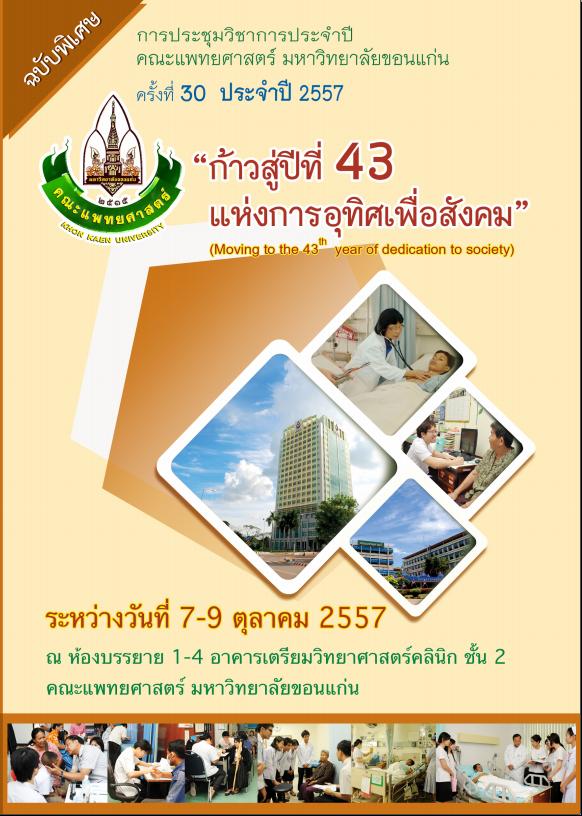HLA Antibody Screening and PRA in Patient Waiting for Kidney Transplantation
Abstract
Background and Objective: The Presence of antibodies against human leukocyte antigen (HLA), which may be directed against HLA class I or/and class II antigens, is a known risk factor for acute rejections and influence on graft survival. Anti-HLA antibodies are usually referred to as percent panel reactive antibody (PRA). PRA is done to identify sensitized patients prior to kidney transplantation (KT) and also forms the basis of cadaver organ allocation. The aim of this study is to evaluate the PRA in the patient awaiting for KT.
Method: A total of 908 for all patients on the waiting list from October 2012 to July 2014 at Srinagarind hospital were included. Anti-HLA were detected by using LABScreen Mixed (LSM). In the positive LSM cases, PRA were determined by using LABScreen PRA (LSPRA).
Result: There were 296 samples (32.6%) showed positive result. Only 280 sera were further tested by LSPRA and showed positive in 258 samples (28.4%). The PRA were ranged as 1-50% in 164 samples (18.1%) , 51-80 % in 51 samples ( 5.6%) and 81-100 % in 43 samples (4.7%).
Conclusion: Based on the results, approximately 30% of the patients were sensitized and 4.7% had high PRA. A high PRA usually means that the individual is primed to react immunologically against a large proportion of the population. Therefore, the patients with high PRA will spend longer waiting time for an organ. However, patients with positive PRA should be identified specificity of antibodies which will be benefit in organ selection.




